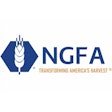
The National Grain and Feed Association (NGFA) testified on Oct. 16 at an Internal Revenue Service (IRS) public hearing to recommend that the agency clarify a recently proposed rule to ensure agribusiness firms like grain elevators qualify for the 20% pass-through deduction under Section 199A of the tax code.
Earlier this year, the NGFA and other stakeholders raised considerable concerns about how an initial version of Section 199A of the tax code - approved during the waning hours of congressional consideration of the Tax Cuts and Jobs Act of 2017 - would influence producer marketing decisions. Congress responded by including stakeholder-driven provisions to fix the so-called "grain glitch" in the omnibus spending bill signed into law on March 23.
The legislative solution achieved NGFA's objective to replicate to the maximum extent possible tax benefits to cooperatives and producers under the previous Section 199, while at the same time preserving a competitive marketplace.
On Aug. 16, the IRS published a proposed rule to implement certain provisions of Section 199A. Importantly, while the proposal has no impact on the legislative action taken by Congress in March, it does contain a provision regarding the deduction for qualified business income under Section 199A that the NGFA told the IRS needs to be clarified or revised.
The IRS-proposed rule would not affect taxpayers and entities organized as C corporations. However, it could be interpreted as excluding other entities - such as individuals, partnerships, sole proprietorships, S corporations and LLCs whose owners are individuals - that are defined by the IRS as "dealing in commodities" from deducting 20% of qualified business income from their taxes under Section 199A.
The NGFA noted the proposed rule does not classify as "dealing in commodities" such businesses as feed mills, flour mills, and grain and oilseed processing plants that transform raw commodities into animal feed or processed products. Likewise, the proposed rule acknowledges that engaging in hedging transactions as part of the trade or business of manufacturing or farming is not classified as "dealing in commodities." But as currently written, the NGFA said, the proposed rule could ensnare grain elevators and other businesses that receive, store and ship raw agricultural commodities without altering their physical state.
"The NGFA urges (that the proposed regulations) be modified to clarify and confirm that (companies whose facilities) take physical possession of commodities are expressly excluded from the definition of 'dealing in commodities,'" said Chris Hesse, principal in the national tax office of CliftonLarsonAllen, an associate member of the NGFA who testified on the association's behalf. "The (dealing in commodities) provision should apply only to the dealing in financial instruments - not taking physical possession (of the underlying commodities)."
Hesse stressed that the intent of Congress in excluding those "dealing in commodities" from the tax break was directed at firms engaged in trading financial instruments or derivatives, not grain elevators that take physical delivery of grains and oilseeds and invest capital in storage and handling infrastructure, and preserve and enhance the value of such commodities through such activities as drying, cleaning, aerating, fumigating, blending and transporting them to downstream customers.
Hesse pointed to several illogical outcomes that could result if the proposed rule is not changed. For instance, the proposed rule would cover commodities "actively traded" on futures exchanges, such as wheat, corn, soybeans, oats and milk, but left uncovered would be commodities for which futures contracts do not exist, such as sorghum, barley, triticale, hay and many others.
"Thus, there is a potential disparity in tax treatment for agricultural businesses based upon whether a particular commodity meets the test of being 'actively traded' on an exchange," the NGFA testified.
NGFA's oral testimony reinforced a written statement the association submitted to the IRS on Oct. 1, in which it stated that, "the intent of Section 199A is to provide a reduction in the tax rates for a trade or business, the income of which is a return on invested capital. The NGFA believes it was the clear intent of Congress that activities such as buying, selling, handling, processing and performing other value-added functions on physical commodities as part of the U.S. food and feed value chain reflect such a return on capital and should be eligible for the Section 199A deduction."
During the public hearing, the NGFA offered to continue to work with the IRS to ensure that regulations are accurate, complete and consistent with the legislative solution.
















